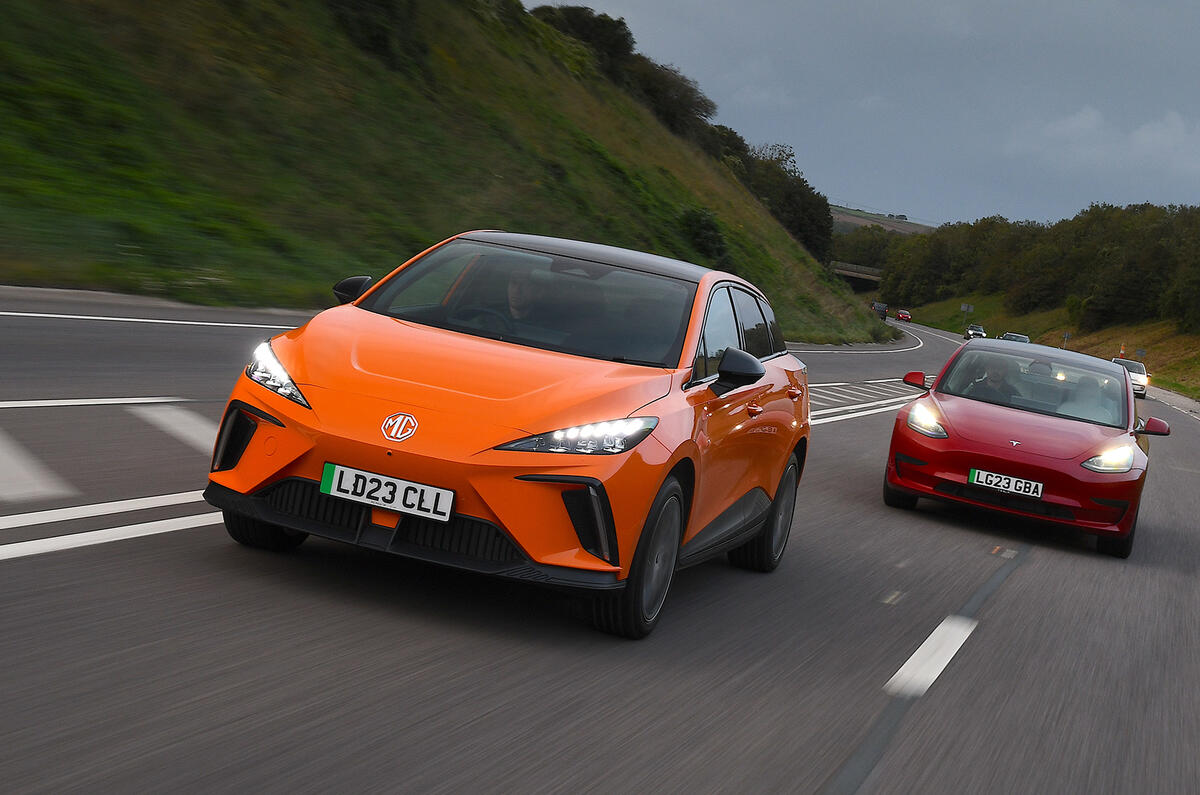Labour must prioritise long-term support for electric company cars or risk falling short of EV sales targets introduced this year, fleet experts have warned.
Currently, these vehicles have an ultra-low 2% benefit-in-kind (BIK) tax band, a powerful incentive, which has contributed towards 83% of new EVs being sold to businesses.
As such, company cars have become an important sales channel for manufacturers – making up 62% of all registrations in July – as they face the UK's zero-emission vehicle (ZEV) mandate, which threatens fines unless 22% of total sales are electric in 2024.
Since the new government took office, fleet-relevant announcements have been slow to materialise, despite Labour promising “policy certainty” for the automotive industry last autumn and plans to reinstate the 2030 ban on new non-hybrid cars in its manifesto.
If not resolved, the sector faces more urgent challenges than shifting phase-out dates for ICE vehicles, according to Toby Poston, director of corporate affairs at the British Vehicle Rental and Leasing Association (BVRLA).
The BVRLA’s Road to Zero Report Card highlights much stronger EV uptake on company car and salary sacrifice schemes (44% and 84% of registrations respectively) than their 16.8% share of the new car market.
Used EV demand is also slowing, affecting residual values and raising monthly lease costs for fleets.
“To tackle the EV demand imbalance, [Labour] needs to introduce a consumer communications campaign and extend the ZEV mandate’s shared mobility credits to daily rental operators,” said Poston.
Currently, EVs are counted 1.5 times towards mandatory sales targets if they're registered to a car club, yet rental fleets don't qualify, because, according to the government, they don't offer the same proven reduction in congestion and emissions.
Poston said: “Leasing and rental companies are already taking the financial risk on a huge proportion of the million-plus EVs on our roads, but they face unsustainable losses from rapid and relentless EV depreciation.
"Introducing a used vehicle grant or tax incentive would boost demand for used EVs, stabilise the market and give these companies the confidence to carry on funding the transition.”
These calls were echoed by Mike Hawes, chief executive of the Society of Motor Manufacturers and Traders (SMMT).
Almost a third (29%) of all company cars (220,000) are electric, but tax incentives are only confirmed until April 2028, and Hawes warned that fleets urgently need long-term tax visibility for this to continue.
“Maintaining company car tax and salary sacrifice arrangements is essential, alongside other measures including an amendment to the VED expensive car supplement, due to commence in April [2025], to ensure EVs are not classed as luxuries,” he said.
The supplement adds £410 to the first five tax renewals for vehicles priced at £40,000 or more and increases with inflation.
Five of 2023’s 10 most popular electric cars have entry prices over that threshold.
Dominic Phinn, head of transport at non-profit organisation The Climate Group, claimed members of the organisation’s UK Electric Fleets Coalition still want to invest.
He said: “We need to see charging infrastructure to help [drivers without off-street parking], for example via pavement gullies allowing the charging cable to cross pavements without causing obstruction.
"Making it easier to install charging points at commercial premises would help too.”






Join the debate
Add your comment
Salary Sacrifice cars are personal leases, not company or fleet cars. This is a flaw at the heart of the SMMT data. Also, buyers need to recognise that the negative misinformation about EVs in the mainstream media is driven by fossil fuel companies who are trying to protect their archaic business model. It's not accurate information, but just propaganda designed to maximise oil profits. Think of it in the same way that fuel consumption is measured in mpg but fuel is sold in litres. It's designed to con you by making it hard to work out how much you're being fleeced by oil companies. Oil companies are not your friends. You can retaliate by buyng an EV.
Vehicles costing £40,000 and over ARE luxuries, whatever they're powered by. Mr Hawes should be calling for the manufacturers to reduce their excessive list prices, rather than the taxpayer to pay even more to the people buying these luxury items.